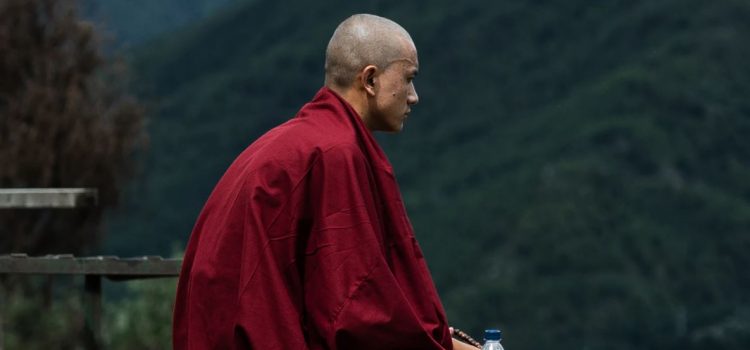

This article is an excerpt from the Shortform book guide to "The Monk Who Sold His Ferrari" by Robin Sharma. Shortform has the world's best summaries and analyses of books you should be reading.
Like this article? Sign up for a free trial here .
Do you want to know how to find your purpose in life? What advice does Robin Sharma give about purpose in his book The Monk Who Sold His Ferrari?
In his book The Monk Who Sold His Ferrari, Robin Sharma gives advice on how to find your purpose (or your dharma) in life. We’ve taken his advice and expanded on it to give you a broader understanding of what dharma is and how to find it.
Continue below for advice on how to find purpose in life.
How to Find Your Purpose
The concept of dharma, which roughly means “purpose,” teaches that everyone has a mission on Earth, and unique skills and gifts to help complete that mission. According to Sharma, living by your Dharma is the only way to achieve true happiness; therefore, in order to live happily and contentedly, you must first figure out how to find purpose.
| The Monk Who Sold His Ferrari translates dharma as “purpose,” which is accurate but doesn’t convey the full scope of the word. Dharma has a much deeper and more religious meaning than just one’s purpose in life; it’s both the laws of the universe as set down by the gods, and it’s what each individual person is meant to do as a result of those laws. The Bhagavad Gita explores this topic in greater depth. |
Setting Clear Goals
Sharma teaches that the first step toward finding your dharma is setting clear and specific goals.
Do this right now: Take a piece of paper and write down some specific long-term goals. Write whatever comes to mind in the moment—you can always reevaluate your list later.
Having a list of goals will help sort through the clutter of your daily thoughts, so that you can focus your attention and energy on what’s important to you.
| In Eat That Frog, Brian Tracy’s book about achieving difficult goals, the first chapter discusses the importance of knowing what those goals are. Tracy, like Sharma, writes that having specific goals will focus your energy and motivate you to achieve them—and the more ambitious your goals are, the more motivated you’ll be. |
John’s Dharma
In The Monk Who Sold His Ferrari parable, the main character John reminisces about how he used to lose track of time while painting. He compares the feeling to being in heaven. Julian tells him that feeling is the result of focusing his energy on something that he loves. He suggests that John’s Dharma may be to make beautiful paintings for others to enjoy.
| Dharma Leads to Flow; Flow Leads to Nirvana Flow, by psychologist Mihaly Csikszentmihalyi, is a deep dive into the kind of experience that John’s remembering. Csikszentmihalyi describes flow as an “optimal experience” where you’re completely focused and completely happy—you’re not losing any mental energy to intrusive thoughts or unhelpful feelings. Nirvana is a state of endless, perfect happiness, which Sharma touches on briefly in The Monk Who Sold His Ferrari. In a religious context, Nirvana is roughly equivalent to heaven; thus, John’s comment that painting was like “being in heaven” shows the link between dharma and Nirvana. Nirvana is the end goal of Buddhism and Hinduism, where it’s defined as a perfect union between your spirit and god (or the universe). The Bhagavad Gita offers details on this more religious interpretation of the concept. In a more secular context, you could consider Nirvana to be a state of perpetual flow—thus, according to Sharma, living by your dharma is a crucial part of reaching Nirvana. Sharma and Csikszentmihalyi offer two different approaches to reaching this state of perfect focus and happiness: Sharma says that you can be happy at all times by finding your dharma, and devoting all of your energy to fulfilling it. According to Sharma, any time that you’re working toward your dharma, you’ll be in a flow state (though he doesn’t use the word “flow” to describe it). Csikszentmihalyi says you can find flow in any situation by setting challenges for yourself. These challenges should be difficult, but achievable.For example, if you want to improve your basketball skills, perhaps you’d practice three-point shots. You’ll experience flow as long as those shots are difficult (but not impossible) for you to make. If making those shots becomes too easy, you’ll exit the flow state, and that’s how you’ll know that it’s time to set a new challenge. |
John now questions whether his goals can be smaller and more practical, such as losing weight. Julian replies that there’s nothing wrong with setting a lot of small goals on the way to larger objectives; in fact, small steps are the best way to get started on major life changes.
| Small goals lead to small victories, which are crucial for maintaining your enthusiasm as you work on a large project like finding your Dharma. Our Iceberg Is Melting is another parable about making major changes. According to that book, one of the key steps in a major project is to achieve and celebrate small victories, just like Julian described in the previous section. |

———End of Preview———
Like what you just read? Read the rest of the world's best book summary and analysis of Robin Sharma's "The Monk Who Sold His Ferrari" at Shortform .
Here's what you'll find in our full The Monk Who Sold His Ferrari summary :
- Why your career success might actually be killing you
- How to live a simple and fulfilling life
- The 10 rituals you should practice for health and healing






